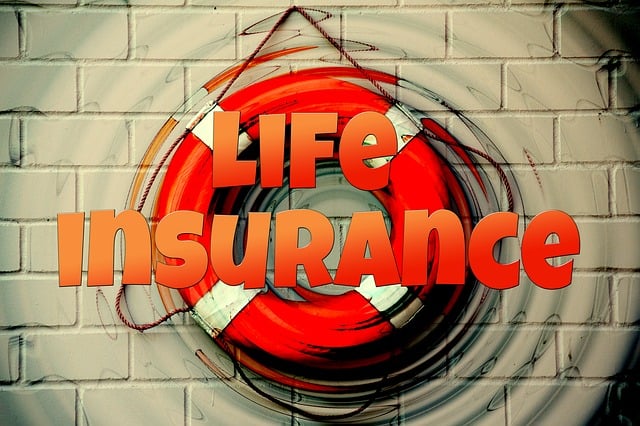Small Business Insurance is crucial for protecting entrepreneurs from unforeseen events, offering coverage against property damage, liability claims, and business interruptions. Understanding and assessing risks is key to choosing appropriate policies, with options like General Liability, Property, and Professional Liability insurance available. Proactive preparation and regular reviews ensure a smooth claims process; bundling policies and risk mitigation strategies can save costs.
“Small business owners face unique challenges, and one of the most vital steps in mitigating risks is securing appropriate small business insurance. This comprehensive guide aims to demystify commercial insurance, empowering business leaders with knowledge. We’ll explore essential aspects such as understanding your business risks through a thorough assessment, different types of coverage, choosing the right policy, and navigating claims. By the end, you’ll be equipped to make informed decisions, ensuring your small business is protected.”
Understanding Your Business Risks: A Comprehensive Assessment

Understanding your business risks is a crucial step in determining the right small business insurance coverage. As a small business owner, you’re likely well-versed in the day-to-day operations and challenges. However, assessing potential risks that could impact your business requires a strategic approach. Start by evaluating your industry’s common hazards—are there natural disasters prevalent in your area, or do you handle hazardous materials? Identify daily activities that pose risks, such as slip-and-fall accidents from your retail space or data breaches if you operate online.
Next, consider the financial impact of these risks. Calculate potential losses and think about how they would affect your business’s stability. Protecting your investment and safeguarding against unforeseen events are primary objectives of small business insurance. A comprehensive risk assessment ensures that you’re not underinsured or overpaying for coverage, allowing you to make informed decisions when selecting a policy that aligns with your unique needs.
The Importance of Commercial Insurance for Small Businesses

For small business owners, commercial insurance is more than just a legal requirement; it’s a safety net that protects against unforeseen risks and uncertainties. In an environment where every decision carries potential consequences, Small Business Insurance offers peace of mind by covering unexpected events like property damage, liability claims, and even loss of income due to business interruptions.
Without adequate coverage, a single incident could cripple a small business, leading to financial strain, legal battles, and even permanent closure. Commercial insurance acts as a shield, mitigating these risks and enabling entrepreneurs to focus on growth, innovation, and serving their customers. It’s an investment in the future of your business, ensuring you’re not just surviving but thriving in an unpredictable market.
Common Types of Coverage: Protecting Every Aspect of Your Operation

Small business owners often face a myriad of risks, from property damage to liability claims and cyberattacks. To mitigate these threats, Commercial Insurance for Small Business Owners offers various coverage options tailored to protect every aspect of their operation. The most common types of small business insurance include general liability insurance, which covers legal costs and damages arising from injuries or property damage on your premises; property insurance, designed to safeguard your physical assets like buildings, inventory, and equipment against perils such as fire, theft, or vandalism; and professional liability insurance, also known as errors and omissions coverage, which shields you from financial loss due to negligence or mistakes in your professional services.
Additionally, business owners may want to consider workers’ compensation insurance, which provides medical benefits and wage replacement for employees injured on the job, ensuring compliance with legal requirements. Coverage for business interruption further protects against revenue loss during unforeseen events like natural disasters or cyberattacks that force your doors to close temporarily. By combining these essential policies, small business owners can create a comprehensive risk management strategy, fostering stability and continuity in their operations.
How to Choose the Right Insurance Policy for Your Needs

Choosing the right small business insurance policy is a crucial step in protecting your investment and ensuring peace of mind. The first step is to assess your specific needs. Consider the type of business you run, the industry risks involved, and potential liabilities. For instance, if you manage a construction site, you’ll need workers’ compensation and general liability coverage, while an online retailer might require product liability and data breach protection.
Once you have identified these needs, compare different insurance providers and policies. Look at the scope of coverage, exclusions, deductibles, and premium costs. Read the fine print carefully to understand what’s included and what’s not. It’s also beneficial to seek advice from industry peers or business consultants who can provide insights into common risks in your sector. This way, you can make an informed decision on a policy that aligns with your small business insurance requirements.
Navigating the Claims Process: What to Expect and How to Prepare

Navigating the claims process can seem daunting for small business owners, but understanding what to expect and preparing accordingly is key. The first step is to review your Small Business Insurance policy carefully, identifying the types of coverage and limits applicable to your situation. Not all policies are created equal, so knowing exactly what’s covered and what isn’t will save you time and stress later.
When a loss or damage occurs, contact your insurance provider promptly. They should provide you with specific instructions on how to file a claim, including necessary documentation and deadlines. Keep detailed records of expenses related to the incident—from immediate repairs to any business interruption costs—as these will be crucial for reimbursement. Effective preparation includes regularly updating your inventory, maintaining business records in secure locations, and ensuring your premises are protected against common risks.
Cost-Effective Strategies for Maintaining Continuous Business Protection

Maintaining continuous business protection is crucial for small business owners, as it provides a safety net during unpredictable times. One cost-effective strategy is to bundle policies—combining general liability insurance with property coverage, for example, often comes at a discounted rate compared to purchasing them separately. This approach not only saves money but also streamlines the management of your policies. Regularly reviewing and updating your coverage is another essential practice. As your business grows or faces new risks, adjust your policy accordingly to ensure you’re protected at every stage.
Additionally, consider the potential savings from preventing claims. Investing in risk management strategies, such as employee training, cybersecurity measures, and regular maintenance of business assets, can reduce the likelihood of costly incidents. Many insurance providers offer loss prevention resources and incentives for businesses that proactively mitigate risks. By adopting these cost-effective strategies, small business owners can maximize their budget while ensuring comprehensive protection for their ventures.
